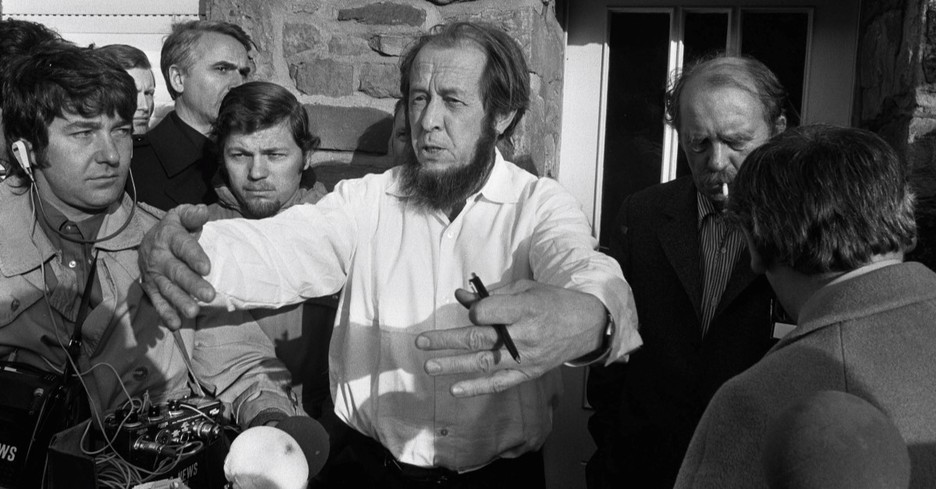
The fight for our planet, physical and spiritual, a fight of cosmic proportions, is not a vague matter of the future; it has already started. The forces of evil have begun their decisive offensive. You can feel their pressure, yet your screens and publications are full of prescribed smiles and raised glasses. What is the joy about?"
These perceptive and challenging words were uttered by one of the great Christians of the 20th century in the heart of a commencement address at Harvard University. Alexander Solzhenitsyn was in exile in America after suffering years in Communist prison camps for criticizing Stalin. He had found faith in the "Gulag Archipelago," the Soviet Union's cruel prison system which devoured alive millions of individuals who opposed or circumvented the atheistic regime.
The result of his suffering was a masterly documentary, Gulag Archipelago, which exposed the brutality of the Soviet regime. At one point in this massive work he showed how utterly different his thought had become from the complacent pleasure-seeking of the West. "Bless you, prison, for having been in my life!" He could say this because in prison he had recognized his spiritual danger and found time to consider the claims of God and Christ. "God of the Universe! I believe again! Though I renounced You, You were with me!" he wrote in a poem.
Solzhenitsyn's Harvard address was given on this day June 8th, 1978. It was an attack on Western complacency. The speaker was equipped with the lens of one culture to see the essential flaw of another. In the West that flaw was foundering courage. He said: "A decline in courage may be the most striking feature that an outside observer notices in the West today. The Western world has lost its civic courage ... Such a decline in courage is particularly noticeable among the ruling and intellectual elite, causing an impression of a loss of courage by the entire society."
He went on to analyze how legalism has eaten up morality. "The West has finally achieved the rights of man, and even to excess, but man's sense of responsibility to God and society has grown dimmer and dimmer. Must one point out that from ancient times a decline in courage has been considered the first symptom of the end?"
Although greeted by much applause during its delivery, Solzhenitsyn's speech generated considerable adverse commentary in the press. To have survived the Gulag, he must have had to compromise a good deal, grumped critics. So who was he to preach at us? Solzhenitsyn apparently had expected such a reaction. In the first paragraphs of his speech he commented, "... truth seldom is sweet; it is almost invariably bitter. A measure of bitter truth is included in my speech today, but I offer it as a friend, not as an adversary." Long before, Solomon said something about that, too. "The kisses of an enemy may be profuse, but faithful are the wounds of a friend."
Bibliography:
- Muggeridge, Malcolm. "Alexander Solzhenitsyn" in Chosen Vessels : portraits of ten outstanding Christian men; edited by Charles Turner. Ann Arbor, Michigan: Vine Books, 1985.
- Nielsen, Niels C., jr. Solzhenitsyn's Religion. New York: Pillar, 1976.
- Solzhenitsyn, Alexander. "A World Split Apart." (Speech Given at Harvard Class Day Afternoon Exercises, Thursday, June 8, 1978).
- -------------------------------- The Gulag Archipelago, Volume 2. New York: Harper and Row, 1975.
Last updated April, 2007.
Photo Credit: Dutch National Archives via Wikimeda Commons.

.jpg)

